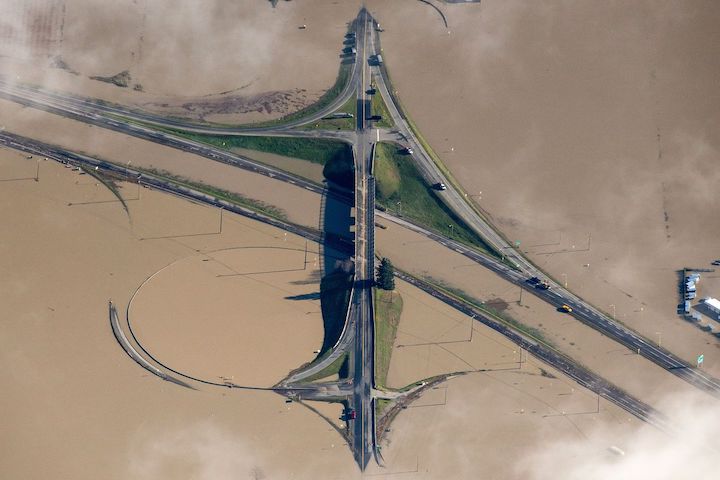U.S. barges carrying gasoline are headed to Canada’s west coast to deliver much-needed fuel to a region cut off from the rest of the country after last week’s rainstorms brought flooding and landslides that damaged transportation links.
Gasoline is in short supply in parts of Canada’s westernmost province of British Columbia including in Vancouver, home to the nation’s largest port and the country’s third-largest city. The arriving barges will help alleviate a fuel shortage in a province where some gas stations have been forced to close temporarily due to empty pumps.
The heavy damage from rainstorms washed away parts of major highways and blocked railways leading east, essentially isolating Vancouver from the rest of the country. That is creating problems getting supplies into the area, and panic buying that has emptied some grocery store shelves and added stress on fuel supplies. B.C.’s provincial government has imposed a maximum purchase of 30 liters (7.9 gallons) for drivers.
“We have been sourcing supply from other jurisdictions as you know, from Alberta for example and also from south of the border,” Mike Farnworth, B.C.’s public safety minister, said Monday in a press conference. “There are some barges that are actually on the way to get here with fuel.”

Pipeline Repairs
Operators at the Trans Mountain Pipeline, which carries crude from Alberta to B.C., are “working around the clock” to ensure that work on the disrupted conduit and its ability to move oil is “done as quickly as possible,” Farnworth said.
Enbridge Inc. said on Sunday that it raised capacity at its Westcoast Pipeline after the conduit was temporarily shut just ahead of the flooding.
The tracks of Canadian National Railway Co. and Canadian Pacific Railway Co., the country’s main lines that transport nearly all rail cargo in B.C. including goods ranging from lumber to grain to the Port of Vancouver, have been closed for a week.
CP Rail will reopen its tracks between the B.C. Interior city of Kamloops and Vancouver by midday Tuesday after 30 locations were damaged, the company said in a statement. Twenty of those locations experienced “significant loss of infrastructure.”
“The following 10 days will be critical,” CP Rail Chief Executive Officer Keith Creel said. “As we move from response to recovery to full service resumption, our focus will be on working with customers to get the supply chain back in sync.”
While parts of major highways reopen, B.C. Minister of Transportation and Infrastructure Rob Fleming said it will be weeks for temporary repairs to be made to the key Coquihalla Highway and months before permanent repairs are made as the country heads into winter.
“We fully understand how important the Coquihalla is to our province for east-west travel and particularly for the movement of goods,” Fleming told reporters in a Monday press conference. “Work is getting underway on temporary repairs and construction access that will allow traffic to start moving.”

Follow us on social media: